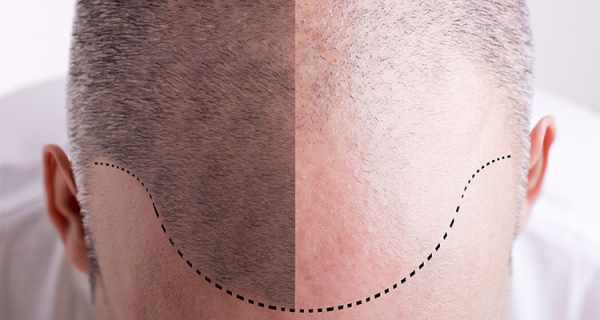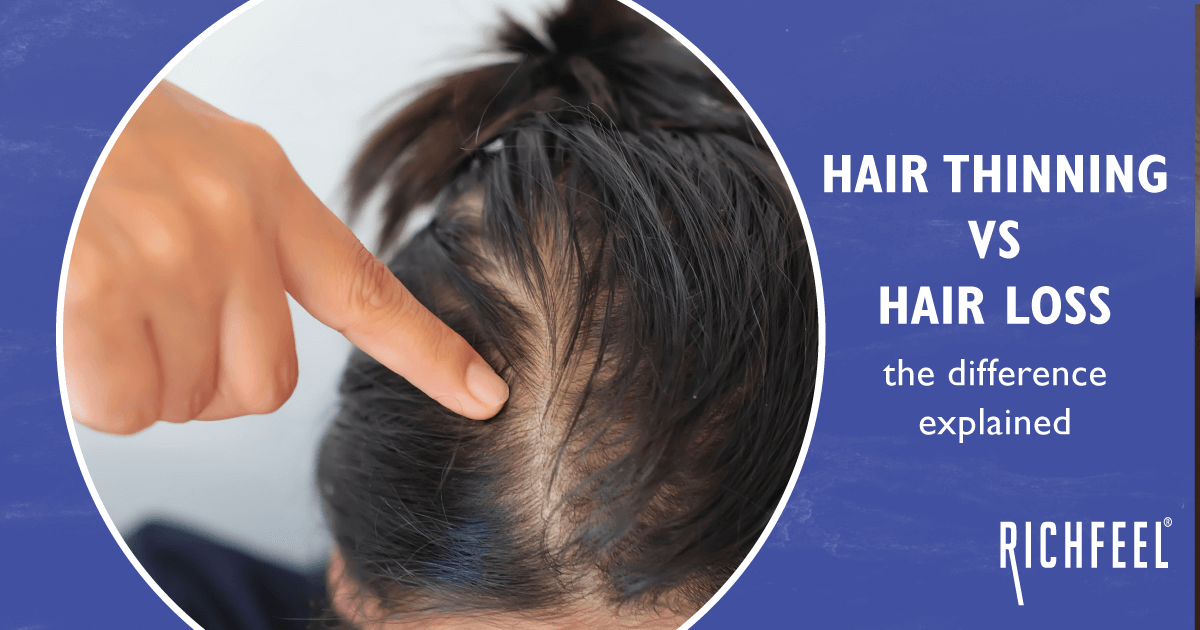‘I fall sick quite often….am told my immunity is low. Is this also the reason why I seem to be having perpetual hair fall?
‘What is the connection between Alopecia and immunity?’
‘Can my body be attacking my hair from within? How is that possible?!’
Answers to some of these questions may be difficult to wrap your head or hair, around!
Immunity is a loosely used word. Every other person uses it and many times, this is with very little understanding of this remarkable system in our body.
We get asked questions around immunity, autoimmune concerns and hair loss all the time during our clinic consultations. And we take time to explain these in great detail to our patients because there is a deep relationship between the two.
With the ongoing health scare of COVID19, there is a lot of discussion around immunity. We have been getting a fair number of calls and queries coming in on these topics, on its relation to hair. Low immunity and hair loss. Autoimmune hair disorders.
We figured we will try and put some of these discussions on to this page today in the interest of our readers. So we are back, after a brief pause, with our ‘Ask the Hair Expert’ series, to give you some answers and clarity on hair disorders that are linked to your immune system.
You asked: ‘Is my immune system the cause of my hair problems? How will I know if my immunity level is affecting my hair?’
Here’s the answer from the Hair Experts.
Yes. Any imbalance in your immune system can trigger or aggravate hair disorders.
Alopecia is an auto-immune disorder that is an example of this. And at a milder level, when you have low immunity you can fall sick often. And every such health concern gets reflected in your hair.Fevers and illnesses can cause hair loss.
Trichology offers many solutions and treatments to handle the varied disorders that are caused due to changes in your immunity level and especially for people suffering from autoimmune disorders like Alopecia. A detailed diagnosis is carried out and treated effectively on a case-to-case basis. You can get to the root of the problem and find your solution with the help of a Trichologist!
Let’s first have a quick overview of what the word ‘immunity’ means and how your hair reflects the health of your immune system in its own way!
Let’s first have a quick overview of what the word ‘immunity’ means and how your hair reflects the health of your immune system in its own way!
What is immunity?
If you look up a biology textbook you will find these definitions and explanations.
Immunity is the ability of an organism to resist a particular infection or toxin thanks to the action of specific antibodies or sensitized white blood cells (WBCs). It refers to a balanced state, having adequate biological defences to fight disease or any unwanted biological invasion. It also refers to having adequate tolerance to fight allergies and autoimmune diseases.
Simply put, your immune system, which comprises certain organs and processes, attacks germs, foreign bodies, toxins and keeps you healthy. It is your defence system that looks out for you!
Understand your immune system.
Your immune system is perhaps one of the most complex systems in your body. It is made up of tissues, cells, organs such as your bone marrow, lymph nodes, thymus, spleen, your digestive system and even your skin!
White blood cells (leukocytes) produced in your bone marrow play a significant role in this system. It can kill the invading foreign bodies/germs (phagocytes) and also help the body remember this invasion… destroy them (lymphocytes)! The WBCs basically is your intelligent army that can sense foreign invaders (antigens) and get rid of them.
Antibodies, specialised proteins, are made inside you by lymphocytes and these lock on to the invading antigens. This way, when the antigen attacks again, the antibodies are ready. This is how immunisations/vaccines work. The vaccine introduces your body to a possible antigen, while not making you sick. Now when the actual antigen attacks your body at a later stage, your antibodies are ready to destroy them.
Does the immunity level change over time? How can you maintain it right?
Yes. It does. With age, there is a dip in immunity. It is why seniors are more susceptible to infections and disorders. As you age, your immune responses become reduced and this leads to susceptibility to infections. Though life expectancy has increased over time, the incidence of age-related disorders has also increased.
While some may age healthily, the likelihood of contracting infectious diseases and the body’s strong reaction to such is relatively more in aged people. Respiratory infections, pneumonia and the COVID19, which we are witnessing now, are a leading cause of death in senior citizens aged above 65.
With age, there is a decrease in immune cells, possibly due to the atrophying of thymus and producing fewer T cells to fight off infection.
Having said that, it is also important to understand that your immune system is something that can be worked upon consciously, strengthening it by consuming a balanced diet and staying active. A healthy immune system needs balanced, regular nourishment. Nutritional deficiencies are known to alter the immune system functioning.
Regular exercise can contribute to general good health and thereby a healthy immune system. In fact, exercise can contribute even more directly as it promotes good circulation. This helps the cells and various components of the immune system to move throughout the body effectively and do their job efficiently.
The immune system can remain strong/balanced with your due attention and can get weakened when you do not tend to it.
When your immunity is ‘good’ it means you remain healthy and your body is not easily susceptible to being attacked. When your immunity is ‘low’ you are more likely to fall sick. You become prone to fevers and illnesses when you have a weak immune system.
What can weaken your immune system?
Autoimmune disorders, cancer & chemotherapy, usage of steroids, congenital disorders, are some that dampen your immunity, apart from imbalanced diet/lifestyle, viral & severe infections that can consume up the WBCs faster than they are produced and certain medications that can destroy the WBCs.
Specific concerns that lower the WBC count in your body includes malnutrition and vitamin deficiencies, anaemia, HIV/AIDS, Leukemia, Lupus, Hypersplenism, Rheumatoid arthritis and other autoimmune disorders, Tuberculosis and other infectious diseases.
With this brief on the topic, let’s move on to understand how your immune system can help with your hair’s well-being or cause hair loss.
Immune cells and your hair
Yes. Your immune system can impact hair growth, positively or negatively. There is a correlation. Healthy and active immune cells ensure hair regeneration, while defective immune cells can impair growth and trigger hair loss.
Studies in recent times have shown that the immune system has a role to play in the regeneration of hair follicles.
As you know from our previous blogs on hair anatomy and hair growth cycle, every hair in our body goes through a specific pattern, cycling between the growth phase (anagen) and rest phase (telogen).
Now among the various players in your immune system, there is a class of cells called the regulatory T cells (a.k.a Tregs). These maintain tolerance to self & foreign antigens, help prevent autoimmune diseases and limit chronic inflammatory diseases.
Tregs are mostly found in the lymph nodes, in muscle or tissues. They perform unique roles specific to the body part they are in. Studies have shown that Tregs reside much in the skin, and around hair follicles. They are a direct trigger and play an important role in the hair growth life cycle. The rate at which they cluster around the follicles influences the hair growth cycle. Studies showed that during the telogen phase, Tregs gather around the follicles, three times more than the normal rate, when it is around the telogen phase.
Tregs also promote hair growth by triggering stem cells in the skin. You cannot regenerate hair in anagen phase without these immune cells working right for you. Thus, your hair growth cycle can’t quite happen without these Tregs! In other words, if these immune cells aren’t there, then your hair simply won’t grow! Prior to these studies, it was always thought that it was the stem cells that had a hand in the hair growth cycle. It has now been established that both stem cells and immune cells have to work together, to make hair regeneration possible. So you see, there is a definite correlation between hair and immune cells.
Another interesting note… The hair follicle is an Immune Privileged site (during the anagen phase). This means that they are able to tolerate the introduction of antigens without fighting it with an inflammatory immune response. Tissue grafts and hair transplants are thus possible on the scalp, for instance, without the body rejecting it.
It may be noted here that when this privilege collapses it contributes to the pathogenesis of autoimmune hair loss disorders, including alopecia areata and lichen planopilaris.
Defective immune cells leading to hair loss
Simply put, when the immune cells don’t behave the way they are meant to, your hair will fall. Research and practise has shown that defects in regulatory T cells could be a cause of alopecia areata and may also be the contributing factor for other forms of baldness as well.
Firstly, let’s state an autoimmune disorder is. It is a condition in which your immune system mistakenly attacks your own body. Normally, your immune system clearly differentiates between the good healthy cells and harmful foreign bodies (antigens). However, if you are someone who suffers from this condition, your immune system loses its ability to differentiate and attacks the healthy cells. While some autoimmune disorders attack a particular organ or part, some affect the whole body. Now, why the immune system would misfire like this in a particular person has been and continues to be a subject of research!
The most common autoimmune hair disorder – Alopecia
The term Alopecia refers to hair loss. It is an indication of your susceptibility towards autoimmune disorders. In this case, the Hair Immunity privilege collapses and your immune cells attack the hair follicles. It also occurs when one is suffering from other autoimmune diseases such as psoriasis, thyroid disorders and eczema-like skin conditions which are of similar nature.
Alopecia can be of various types. The intensity or nature of hair loss changes with each type. It can be hair loss in patches on the scalp or even complete hair loss on the scalp. There are cases when one experiences complete body hair loss. Whatever the kind, it needs medical, professional help.
Alopecia Areata, Alopecia Totalis, Alopecia Universalis, Scarring Alopecia are some of the types of the disorder, each having specific indications, where the hair follicles are attacked and there is tremendous unpredictable hair loss.
If you have noticed hair falling off in clumps or small odd bald patches on your scalp, you are likely to be suffering from Alopecia Areata, perhaps the most common form of Alopecia observed. It is also referred to as spot baldness. It is characterised by hair loss creating distinctive bald patches.
Alopecia Areata should be distinguished from androgenetic alopecia or what is commonly known as male pattern baldness. Do read our pages on the topic for more clarity on MPT and FPT.
While it may start with small patches, the hair loss can stay patchy or lead to complete loss of scalp hair, depending on the type of Alopecia one is suffering from. While it is not a condition that makes people ‘sick’, it does cause a lot of trauma – the emotional aspect of losing hair. And the societal pressure that comes with it.
For more on this, do read our earlier blog on the topic.
The various types of alopecia are caused by varied inflammation that encompasses a group of disorders, classified based on the presence of inflammatory cells such as the lymphocytes and neutrophils. Symptoms range from pain in hair roots, burning sensation on the scalp, the formation of crusts, red blisters, smooth bald patches on scalp and pigmentation.
This apart, there are various types of autoimmune disorders like thyroid disorders (Hypothyroidism and Hyperthyroidism) that trigger hair loss. Hypothyroidism that is not associated with autoimmunity is also known to cause hair loss! Lupus, Graves disease, psoriasis and Crohn’s disease are some of the other autoimmune conditions that affect your hair.
How can you cope with hair loss triggered by immune system concerns? How can a Trichologist help?
Most hair & scalp concerns require a careful dermatologic examination of the scalp and thorough hair analysis. All the clinical, histological and pathological observations together give a conclusive diagnosis. In some cases, as Lichen Planopilaris discussed above, a biopsy is very crucial in the diagnosis. Clearly this is something that needs the attention of a medical professional. And who knows your hair & scalp better than a Trichologist?
Once a clear diagnosis is drawn, he/she will guide you on the right line of treatment, and also help with possible solutions such as a hair transplant surgery or non-surgical hair systems or hair fertility treatment or hair thinning treatment, or a primary hair fall treatment – as your situation warrants.
This apart, here are some things you can do to help strengthen your immunity and thereby your hair! While these are general tips to better immunity and hair, your trichologist may guide you with very specific tips for your hair condition.
Basic tips to boost your immunity and thereby your hair’s health
- Eat a balanced diet high in fruits and vegetables. Get those Hair Foods in.
- Exercise regularly and stay active.
- Maintain a healthy weight. Do not crash-diet.
- Ensure you get adequate sleep.
- Follow guidelines to avoid infection, such as washing your hands frequently and cooking your meals thoroughly.
- Minimize stress.
- Avoid smoking.
These tips won’t just boost your immunity system, it will ensure great hair! When your immunity system is tipped wrong, your hair is one of the first ones to react and signal out to you. You just need to pay attention.
Thus thanks to trichology and trichologists, there is help around the corner and the solutions are many. What you need to do is to stay aware, and make that timely call when you suspect a problem.
Remember, your immune system bears a great responsibility of defending you against various factors including disease-causing microorganisms and as you have learnt today, plays a great role in your hair growth cycle! But it needs your help.
Trust we have addressed your questions on this topic well! If you wish for any further details or clarifications, you know where to reach us! Our experts are just a call away.
For more on hair & scalp concerns, and for all things ‘Hair’, do follow our blogs on hair loss, hair care, treatments and solutions and interesting hair trivia!
Connect with us on social media on the links below. Do leave your questions & comments and we will address them all, just as we have done today!



